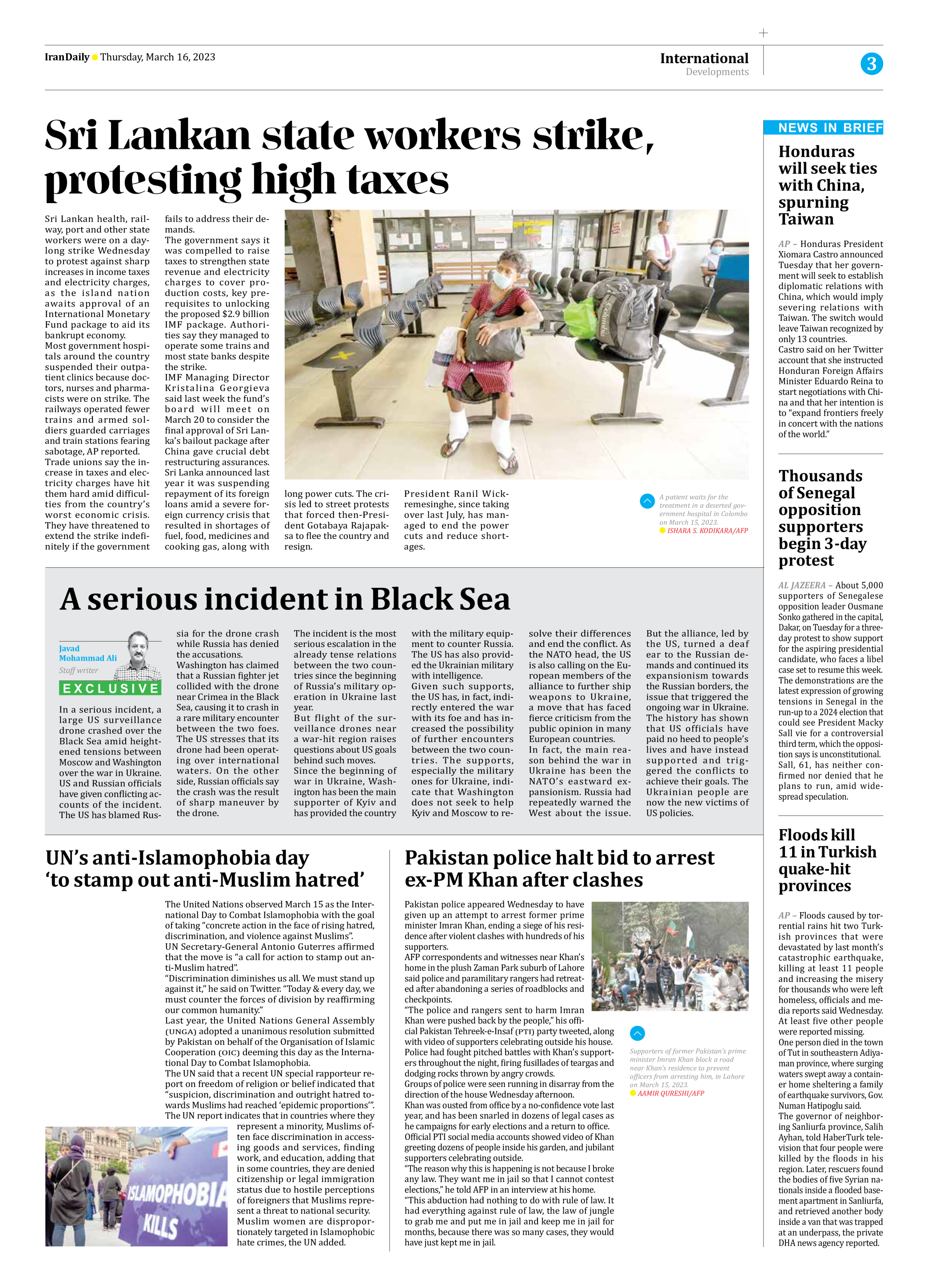
Sri Lankan state workers strike, protesting high taxes
Sri Lankan health, railway, port and other state workers were on a daylong strike Wednesday to protest against sharp increases in income taxes and electricity charges, as the island nation awaits approval of an International Monetary Fund package to aid its bankrupt economy.
Most government hospitals around the country suspended their outpatient clinics because doctors, nurses and pharmacists were on strike. The railways operated fewer trains and armed soldiers guarded carriages and train stations fearing sabotage, AP reported.
Trade unions say the increase in taxes and electricity charges have hit them hard amid difficulties from the country’s worst economic crisis. They have threatened to extend the strike indefinitely if the government fails to address their demands.
The government says it was compelled to raise taxes to strengthen state revenue and electricity charges to cover production costs, key prerequisites to unlocking the proposed $2.9 billion IMF package. Authorities say they managed to operate some trains and most state banks despite the strike.
IMF Managing Director Kristalina Georgieva said last week the fund’s board will meet on March 20 to consider the final approval of Sri Lanka’s bailout package after China gave crucial debt restructuring assurances.
Sri Lanka announced last year it was suspending repayment of its foreign loans amid a severe foreign currency crisis that resulted in shortages of fuel, food, medicines and cooking gas, along with long power cuts. The crisis led to street protests that forced then-President Gotabaya Rajapaksa to flee the country and resign.
President Ranil Wickremesinghe, since taking over last July, has managed to end the power cuts and reduce shortages.







